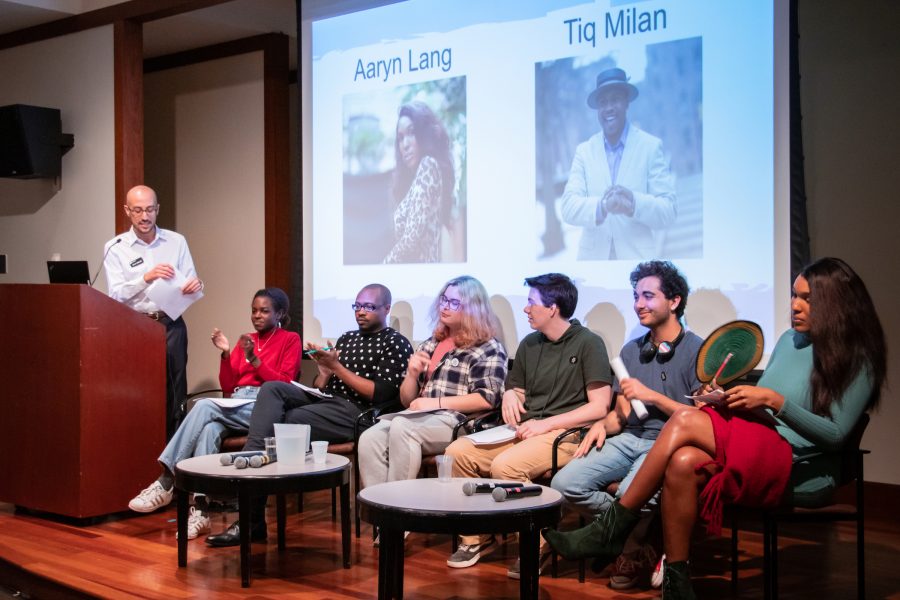NYU kicked off its Trans Awareness Week with an event on Monday informing students on how to support the feminist movement while being inclusive of transgender people.
The panel event was called “Not On Our TERF: Building More Trans Inclusive Feminist Movement,” and featured LGBTQ student leaders and speakers. TERF stands for Trans Exclusionary Radical Feminism, a term that encompasses people who claim to support feminism but do not acknowledge trans people in the movement.
An example of this would be supporters of the feminist movement who oppose legislation that would support transgender people. By refusing to support legislation that would benefit the lives of trans people, they are not in favor of everyone having the same opportunities.
CAS junior and Queer Union Secretary Nick Rogers, CAS sophomore Fatima Ibrahim, CAS sophomore and T-Party Secretary Rose Russell and Tandon senior and President of oSTEM Tarek Hassoun gave a presentation which defined TERF and provided some examples of TERF behavior. Queer Union, T-Party and oSTEM are all student groups for members of the LGBTQ community; T-Party is specifically for transgender, genderfluid and non-binary students and oSTEM is specifically for out STEM students.
During the panel, Rogers referenced the Michigan Womyn’s Music Festival, which enacted a policy in 1991 that only women who were assigned female at birth could attend the event. Rogers said protests and boycotts over the exclusionary policy led to the event’s demise in 2015.
NYU LGBTQ+ Center Director Chris Woods introduced Tiq Milan, a queer trans man who works as the national spokesperson for GLAAD, a media organization that highlights LGBTQ issues and encourages inclusive wording and reporting by news outlets. NYU LGBTQ+ Center Assistant Director Christopher Griffin introduced Aaryn Lang, a black trans woman who hosts the PBS Digital Studios show “First Person,” which highlights stories about gender identity and sexuality.
Hassoun spoke to the importance of the event for NYU students.
“It’s not just to highlight what TERF ideology is and how it affects our society, but also we need to give a little hope to the current trans and non-binary population at NYU who might be feeling down or having imposter syndrome,” Hassoun said. “We’re here to support you and there’s no need to feel shame for yourself, because there should not be shame in the first place.”
At the end of the panel, Ibrahim asked Lang and Milan how they stay true to themselves in the face of adversity, including that associated with TERF. Milan responded that being with people who love him keeps him grounded as an individual.
“Surrounding yourself with people who love you should be a right,” Milan said. “There’s so many of us who are on the gender spectrum who have lost a lot of people who were supposed to love us. I have been blessed not to. I get to go back to them and find my home in them.”
Silver senior Leah Minio noted how the TERF rhetoric can marginalize important transgender activists out of the LGBTQ movement’s narrative.
“It’s important to know the history, especially since trans women of color were huge voices that amplified the gay rights movement,” Minio said. “Erasing trans women is erasing part of queer history.”
First-year law student Mac McMechan, who identifies as trans and non-binary, attended the event and said its message of inclusivity is important.
“We should strive away from anything that dehumanizes and towards anything that brings forth a shared identity,” McMechan said.
Email Alexandria Johnson at [email protected].
Update, Nov. 13: In the original article the NYU LGBTQ+ Center was referred to as the LGBTQ+ Student Center, its previous name. The center was renamed in August and the article has since been updated to reflect this.


























































































































































